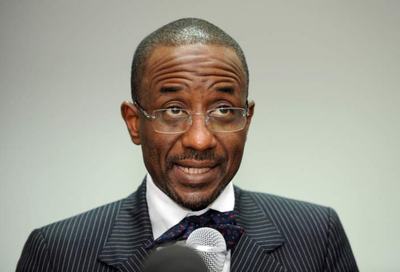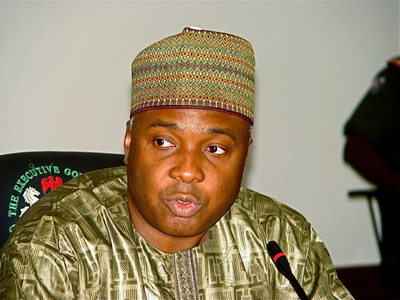First published by; This Day Newspaper, 15th February 2016 – Finding a Remedy for Nigeria’s Troubled Currency
The continuous slide of the naira on the parallel market as well as foreign currency restrictions in the country have continued to ignite the naira devaluation debate. Most foreign investors and analysts strongly hold the opinion that the official naira exchange rate is not sustainable and should be adjusted to somewhere close to the parallel market rate.
However, the Central Bank of Nigeria (CBN) as well the President Muhammadu Buhari, who has always held a populist position on issues, believe that another round of naira devaluation would hurt the common man and fuel inflation. As a result of this, a lot of foreign investors have chosen to remain on the sidelines because of the uncertainty around the future of the naira.
However, some policy makers and economic experts who spoke at a colloquium titled: “The naira on Trial: To Devalue or Not,” organised by The Cable, an online newspaper, in Lagos recently, shared their perspective on the issue.
Historic Low
The naira hit a record low of about N320 to a dollar on the parallel market last week, down from about N310 to a dollar the preceding week, as scarcity of the greenback persisted. However, at the official interbank forex market, the nation’s currency is sold for about N200 to a dollar as the central bank continues to defend the currency.
Last week, the returns on utilisation of funds bought from the Central Bank of Nigeria (CBN), showed that a lot of foreign portfolio investors were divesting from the country’s equities and bond markets as this accounted for one of the largest chunk of forex in terms of value, bought by customers from the market.
The Devaluation Debate
Commenting on the on-going debate on naira devaluation, the Edo State Governor, Adams Oshiomhole, argued that devaluing the nation’s currency further would hurt Nigerian workers as well as reduce purchasing power in the country. He also stressed the need for Nigerians, especially the elites to cut down their appetite for foreign goods.
According to the former Nigeria Labour Congress president, everything was perfect when crude oil price was around N140 per barrel, adding that then; there was no conversation on whether the naira should be devalued.
“So, if oil prices had gone to N200/$1, I suspect nobody would be talking about devaluation. If we don’t cut our demand for imports and re-order our consumption pattern and our foreign exchange receipts continue to decline, all things being equal, in the next one year, our foreign exchange reserves would be zero. So, I think it is the realisation of this danger that all of a sudden everybody is discussing devaluation,” he added.
Oshiomhole recalled that the subject of naira devaluation in Nigeria was first triggered by the International Monetary Fund (IMF) in the 80s. “Then, we were lectured about the beauty of devaluation. We were even told the additional benefits of how it is going to help redirect our consumption. We were told by those experts that when you devalue, a couple of things happen immediately – prices of imported goods would go up and so when we begin to consume less of what is imported.
“These were some of good arguments around the issue of the Structural Adjustment Programme (SAP) introduced by the IMF. But at the end of the day, we didn’t see those benefits. That is why I believe the issue of national economic policy should not just be left in the hands of experts alone,” he added.
He said: “The CBN I understand took some measures which are beginning to hurt some people and that has triggered this controversy. Rather than the government, as it used to be in the past, indicating their intention to devalue, it is a section of the people that are behind these controversies: the investment bankers. These are the investment bankers who want to play on bonds and other commercial papers with hot monies, that they can move in and out, they don’t want any interference.”
Furthermore, he opined that the present scarcity in Nigeria’s foreign exchange market is not a supply issue, saying “we are dealing with pure speculation issue and If you devalue, the main people who would be trapped are the workers.”
He added: “Will devaluation curb our appetite for imported goods as the IMF had argued in the 80s? The evidence from the CBN shows that policies in the Nigerian environment cannot curb our appetite for foreign goods. The last time the CBN devalued in 2014, as a matter of fact, our exports actually declined and our imports increased by 2.9 per cent after devaluation. When human beings don’t labour to earn, they do not spend rationally.
“Even if we devalue 300 per cent, it would not curb the appetite of the elites to import toothpicks, frozen chicken, even if it is harmful, and to even import expired rice from other countries. So, the thesis that devalue and you will export more, is not supported by evidence. The evidence we have is that 98 per cent of our exports is in oil and gas which is priced in dollars. So, no matter what your exchange rate is, this percentage will not change.
“On the other hand, when you devalue, will fewer people travel? Again, the evidence is no. This is because those who occupy permanently, the executive seats of British Airways, they are the people who live on rent. They are the subsidy boys, and they are the political class. So, for me, I am not able to see what the benefits of devaluation are.”
Furthermore, he said: “The president has said openly that he will not join forces with those who want to kill the naira. And when he uses the word ‘kill,’ he means it with every sense in the world. He has used that same word, to describe corruption. He had said if Nigeria does not kill corruption, corruption would kill Nigeria.
“So, he is leading those that do not want the naira to be killed and we have the CBN also among those defending the naira. I associate myself with the position of the president, not because I am a loyal party member, but because I have looked at the statistics and I have seen a strong
“I think what we require as a nation is what we currently have- a president with clear determination to compel all of us to change our consumption and to reconcile it with current realities. Those who live on speculation, we have no business supporting them. And for people to take our policies seriously, as a matter of policy, I think we must move away from the regime of which we make policies in the morning, and reverse them in the evening.
“The CBN has come up with a list of 41 items, but I think that number needs to be increased. We have no business importing rice. When you look at the import bills of Nigeria, how can we spend so much on agriculture and yet we are importing so much? We are importing even harmful products! So, for me, let’s support the efforts of CBN and the president.
“So, we need a determined state, that is why the constant reminder by the president that the country would not devalue is very important because there are lots of people waiting that these things would change. But they would not change. So, people should wake up from the reality.”
But the Chief Executive Officer, Financial Derivatives Company Limited, Bismarck Rewane, stressed the need for the CBN to develop an exchange rate policy. He expressed concern over the rent-seeking opportunities created by the wide gap between the interbank and parallel forex markets
According to Rewane, “10 to 15 years ago, we had Western Union, MoneyGram bringing money into Nigeria. Nigeria’s diaspora had $21 million every year in earnings which can come in here. Why are they no longer coming in? The central bank tells us that it disbursed over $8 billion to BDCs in the last two years, who are the BDCs?
“As we speak, the system is being abused and corrupted and some of the people sitting down here today are saying they want the policy to continue so that they can continue to abuse and steal the money under the guise that they are protecting the currency.”
To Rewane, the devaluation ought not to be politicised as it is presently, saying that there are vested interest in keeping the currency at its present state. “Whether you like it or not, you will have to provide the currency in an import-dependent country. When you talk about currency flexibility, prices go up and down, but here why is it that the naira will continue to be on a perpetual downward slide? But without a forex policy, we would end up with nothing,” Rewane added.
Also, the Director, Monetary Policy, CBN, Mr. Moses Tule said there was need to encourage foreign direct investments (FDIs) in the country. According to Tule, the ‘Ease of Doing Business’ data on Nigeria is poor, compared with other countries in the continent. Tule urged the fiscal authorities to help push for a change in Nigeria’s investment climate, saying there is need for the country to leverage on the size of its population, market and labour size to industrialise the country.
“Nigerians, with our attitude and the kind of consumption pattern we have acquired over time, have taken the naira to court and the naira is on trial. The prosecutors are the elites. We have seen the data coming out that shows how much either the political or financial elites have taken out of this country. “Nigeria is a big economy, but because we didn’t put our house in order, we are having the shock we have today. The whole of West African sub-region come to Nigeria to look for foreign exchange. As at June 2015, the total external reserves of the 15 countries in West Africa was just about $32 billion. Of that amount, Nigeria alone had $29 billion and none of the currencies of these countries have come under speculative attacks that the naira has faced in recent times,” Tule added.
The Secretary General of the Nigerian Union of Textile Garment and Tailoring Workers of Nigeria (NUTGTWN), Comrade Issa Aremu, urged Nigerians to consume what is produced locally in order to reduce reliance on foreign exchange and provide employment opportunities for the teeming unemployed people. Read more





